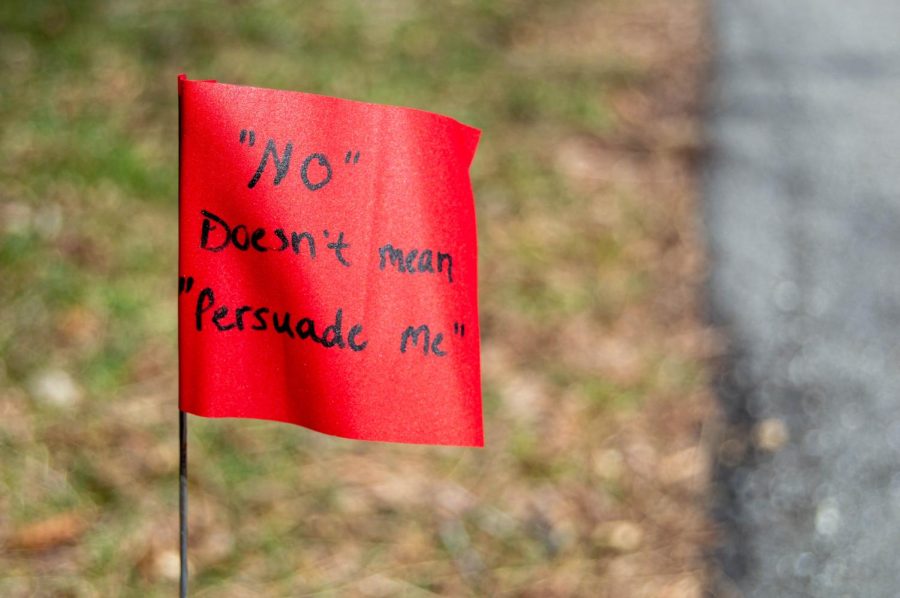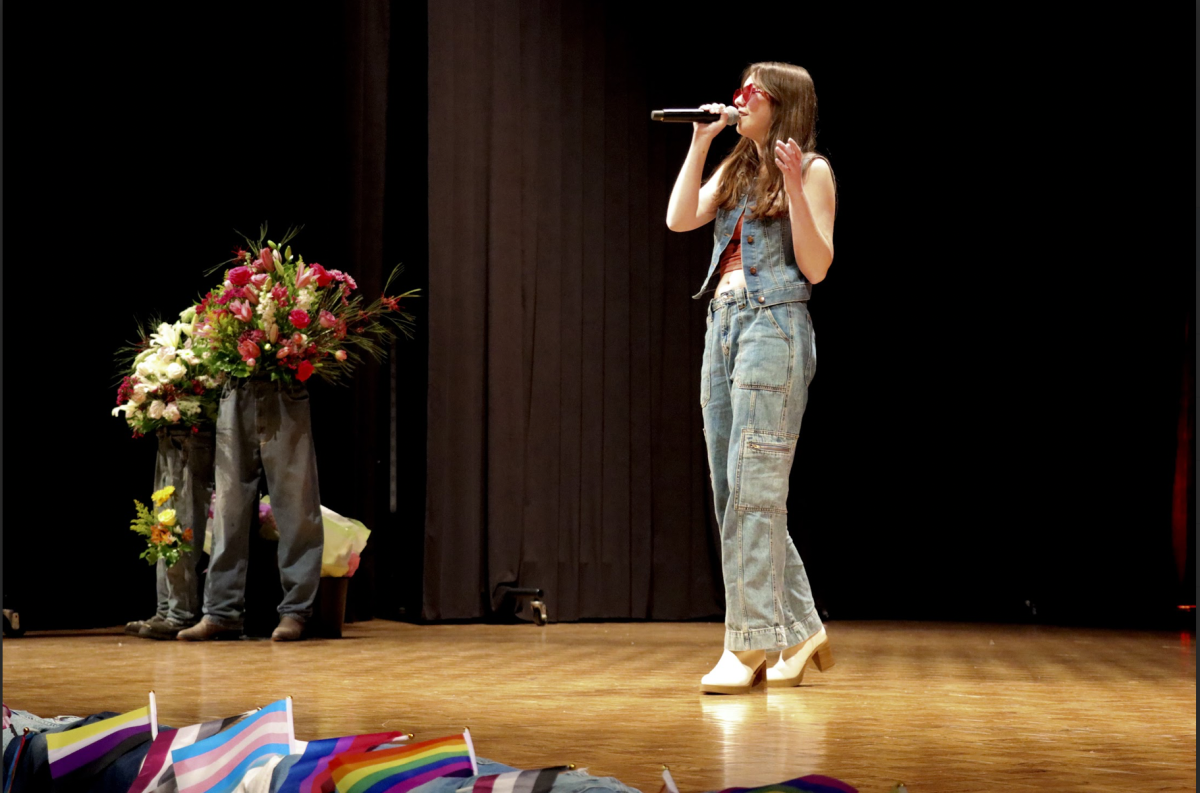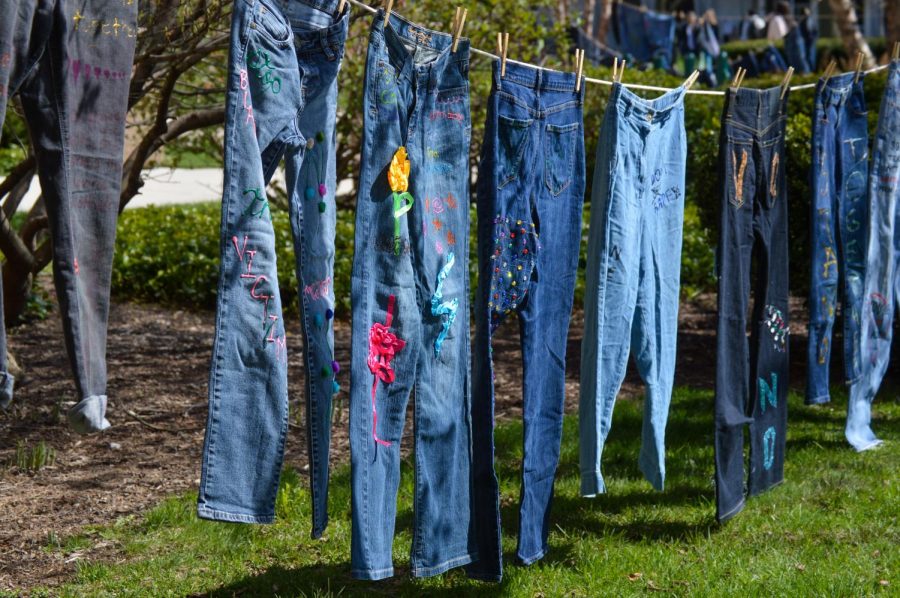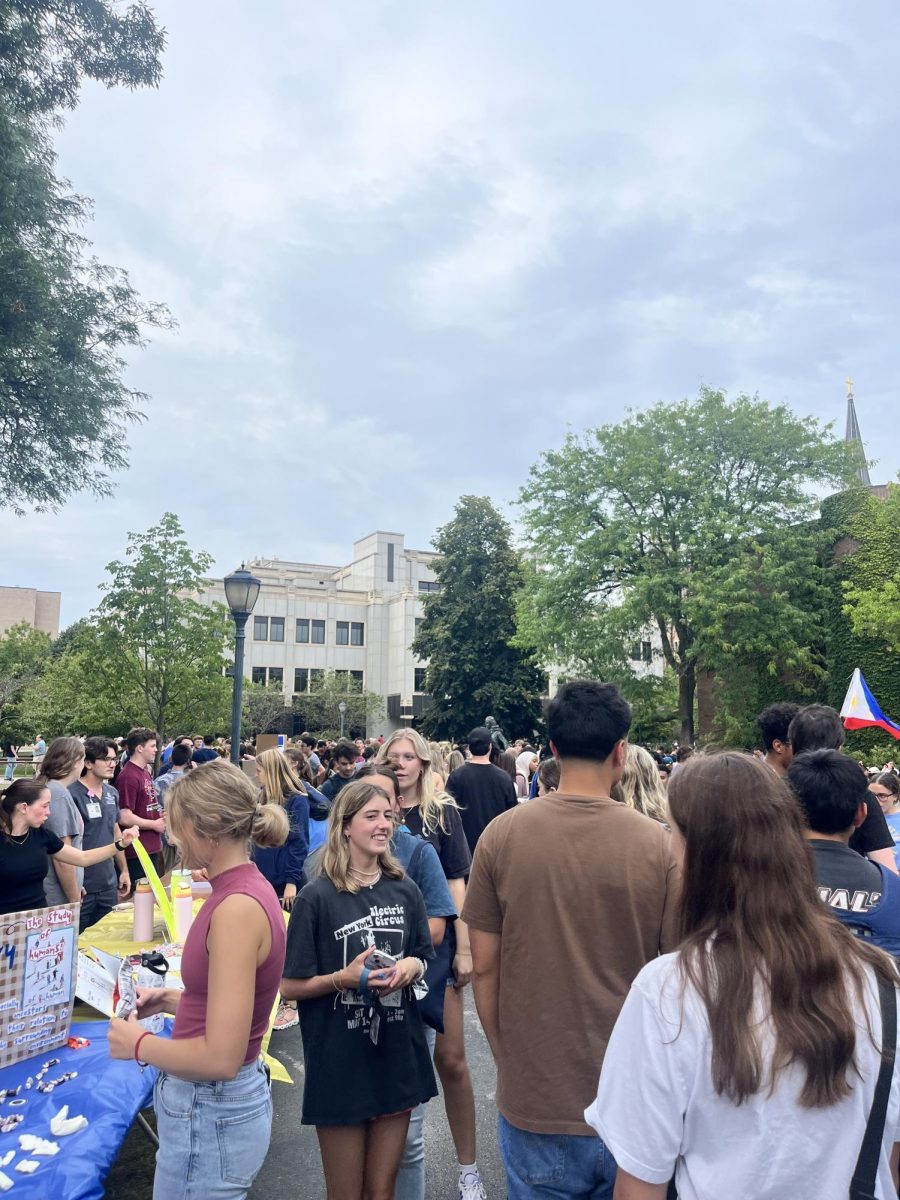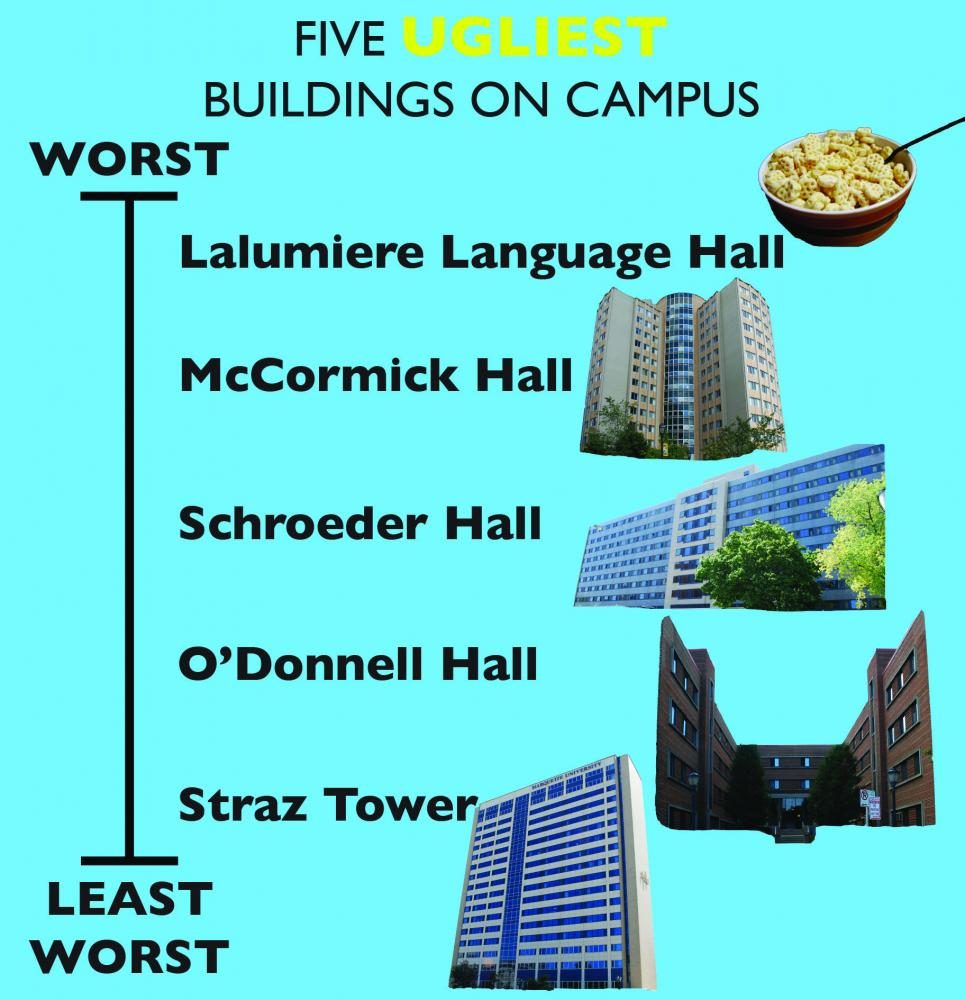Red flags were displayed outside of Lalumiere from April 19-23 to bring awareness to problematic behaviors that could be indicators of sexual and relationship violence.
While the red flags stood out against the green grass on the central lawn, the behaviors they represented are not always so simple to notice.
Dylan Timm, sophomore in the College of Business Administration, said he believes the conversation about red flags is important for awareness.
“When you’re in it [a toxic relationship], you get tunnel vision, so you don’t realize everything that’s happening. But when you see it from an outsider’s perspective it’s a lot easier,” Timm said.
Delaney Garvey, first-year in the College of Communication, agreed and said red flags are difficult to see in the moment, especially when you are being isolated from your loved ones.
“[If] they want to separate you from your friends, that means they obviously think your friends wouldn’t like their behavior. [They are] trying to get you alone so you can’t get a second opinion on what’s happening” Garvey said.
In an email, Angie Rehling, prevention coordinator with the Wisconsin Coalition Against Sexual Assault, said misunderstanding is a key reason red flag behaviors sometimes go unnoticed.
“People may not be aware that what they are experiencing actually is sexual violence,” Rehling said.
WCASA defines sexual violence as any act or behavior (verbal or physical) that is sexual in nature and conducted through force, threats, coercion, manipulation, or abuse of power. It is a tool of oppression that affects people of all identities, ages, and abilities.
“Clear, informed, specific, freely given conversations around consent should happen whether you have been with someone for 5 minutes or 50 years,” Rehling said.
Jenna Kozal, sophomore in the College of Arts & Sciences, organized the red flag display for the Center for Peacemaking. The display and other events, like Denim Day and an upcoming Soup with Substance are for Sexual Assault Awareness Month.
Denim Day is an awareness event that calls for an end to victim blaming of those who have faced sexual violence. Soup with Substance on April 27 will host four Marquette faculty members who are related to research surrounding sexual assault.
Kozal said she hoped the red flag display would focus on raising awareness to early signs of sexual and relationship violence.
“It’s more of a preventative mindset instead of ‘this really unfortunate thing happened to you, how can we help you heal and move on,’” Kozal said.
Kozal believes healing focused resources are important, but additionally having a display that focuses on prevention can benefit the Marquette community.
Kacie Otto, victim advocate and violence prevention specialist at Marquette, said that education on red flags gives people the tools to assess their relationships earlier and potentially get help sooner before a serious threat escalates.
Otto said if someone has a gut feeling that something is weird or possibly a red flag to use the ‘free, confidential, and non-judgmental’ resources on campus like advocacy services and the counseling center. Neither resource is mandated to report and all information is kept confidential. According to Otto, both resources can help an individual figure out a safety plan and next steps.
Friends and loved ones, Otto said, can also play a crucial role in prevention and can seek advocacy services or the counseling center as well.
“They [the resources] can help you game plan how to support that friend in the event that something violent is happening,” Otto said.
Otto said the support game plan will look different for every situation, but it is the first step in getting your loved one the support they need.
Rehling also encourages everyone in the Marquette community to play their role in prevention.
“Prevention falls on all of us as sexual violence is a community-wide issue. All of us need to do our parts to interrupt the social norms that contribute to the normalization of sexual violence” Rehling said.
WCASA encourages individuals seeking to help prevent sexual violence or support to connect with local programs.
“Oftentimes, when there’s smoke there’s fire. If someone has enough of these [red flag] qualities or problematic behaviors, [violence] will be accelerated,” Kozal said.
If you are seeking support, you can contact:
WCASA: (608)257-1516
Advocacy Services at Marquette: (414)288-5244 or advocacy@marquette.edu
The Counseling Center at Marquette: (414)288-7172
This story was written by Maria Crenshaw. She can be reached at maria.crenshaw@marquette.edu

